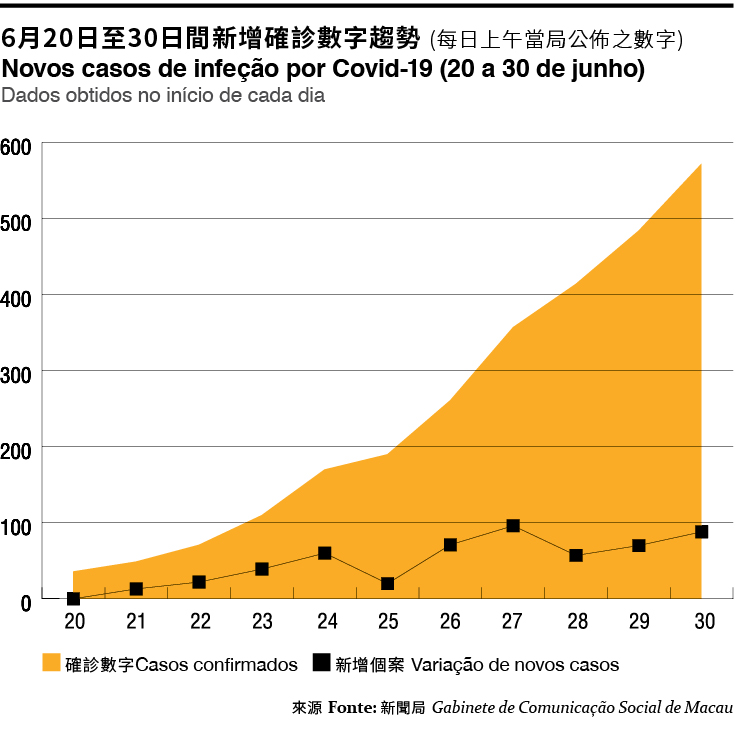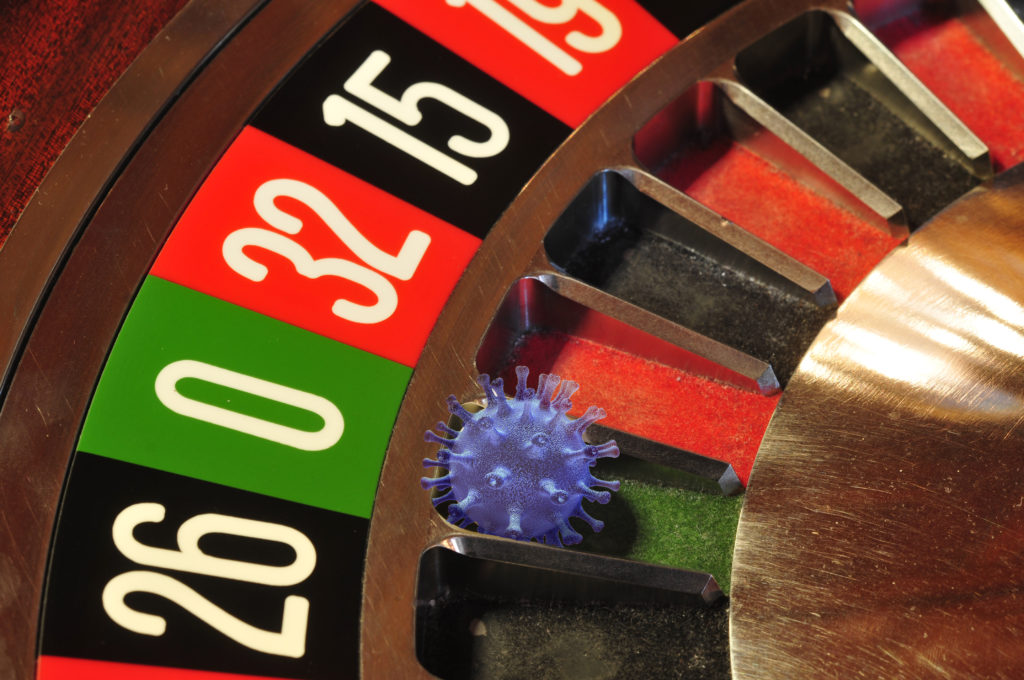The recent pandemic outbreak should cause gross gambling revenues to fall back to the numbers recorded in 2020, according to an observation made by Alidad Tash, an expert in the field, to Macau News Agency, where he also stressed that revenues for 2020 and 2021 represented 20 and 30 percent of 2019 revenues, respectively
Despite the “devastating” impact of the pandemic, last year saw a “small recovery”, he considers. And not even the fall of game promoters has led several analysts, including himself, to predict a drop in revenues this year, even believing they could reach at least 40 percent of 2019 values.
However, the first five months of 2022 were below expectations, with a drop of 44 percent compared to the previous year. And that was before the city faced its worst outbreak since the start of the pandemic, with the first cases – identified on June 18 – triggering a gradual setback in border relaxation with Inland China, the main visitor market. Macau has led brokers to target gaming revenues close to zero. “In fact, it is much more likely that in 2022 revenues will be closer to 2020 than to 2021, that is, a step back rather than forward,” warned Tash. It should be noted that from the 1st of July, all persons entering the playing areas must have a negative nucleic acid test certificate obtained within the previous 48 hours, including professionals in the sector.
PLATAFORMA reported last week that businessmen and association leaders were counting on a return to normality in August, in order to “take advantage” of the summer holidays to circumvent the serious financial situation caused by the pandemic. The local authorities, in fact, guarantee that the epidemic situation is under control and that the prevention work is being a success, so much so that it will not be necessary to ask for help from Mainland China.
What is certain is that 13 days after the first cases were identified, Macau is still struggling to control the spread of the virus (see chart). This difficulty does not allow, for now, to understand when it will be possible to coordinate with Zhuhai the border flexibility that was lost at the beginning of the outbreak. At the moment, the border remains open, but anyone leaving Macau for the neighboring city has to present a negative result within 24 hours, while Zhuhai announced that anyone traveling to Macau needed a negative test within 48 hours. . People entering Zhuhai from Macau are also required to undergo a seven-day quarantine in a medical observation hotel plus seven days of home isolation.
The unavoidable question
The implementation of the “zero cases” policy continues to be criticized by the local population. Speaking to All About Macau, Sulu Sou, former deputy of the Legislative Assembly and vice-president of the Novo Macau Association, warns of the growing controversy surrounding the policy implemented in the MSAR, stressing that the fundamental principle of prevention policy must to obtain a consensus of the community, being also necessary the Executive to create a public space in order to allow and promote the discussion, instead of “overpowering everything”.

“Right now, the public space for discussion seems to be taken over by problems such as the number of service centers for the elderly, the waiting list for the mass test, and the reasons for closing a building or not”, he laments. While acknowledging that Macau does not have the necessary resources to adopt a policy of coexistence with the virus, pointing out that many of the anti-pandemic measures were implemented for the first time in the most recent outbreak, Sulu Sou believes that the stereotype that this is a policy should not be created. of “letting the infected die”. The former deputy cites the World Health Organization and says that coexistence does not mean letting people die of the disease, nor allowing the epidemic to spread indefinitely.
Sulu Sou also stresses that the authorities must establish a more concrete and transparent plan to deal with the community outbreak. “We have to move forward. In the future, there may not be a need for massive testing and instead we use the rapid test for Covid-19 as a screening tool. Asymptomatic infected people may not be sent to the hospital and stay at home. So society won’t need to close down every location,” she says.
At the same portal, Ron Lam, deputy of the Legislative Assembly, reiterates that it is not the time to think about which of the policies best fits the reality of Macau. In his opinion, the priority is to control the local outbreak and, contrary to what the authorities say, he does not believe that the work is succeeding. Returning to the issue of coexistence with the virus, practiced mostly in the West, he says that there must be a series of conditions for this to become a chance for Macau. Another problem he points out would be the impact this could have on the flow of visitors from Mainland China.
Last week, the Chief Executive reiterated the priority of the “zero cases” policy, given that if Macau does not practice it, “we will not have our borders open to mainland China, keep tourists and revitalize the economy”. Before the pandemic, tourists from Mainland China accounted for around 70 percent of arrivals in Macau, with the second largest source of food for the Region being Hong Kong (18.7%). With border restrictions blocking this market and others, dependence on Mainland China has consolidated (91.4% in 2021). But this circumstance only makes a solution that circumvents Macau’s economic difficulties more pressing, according to Ron Lam. “How can the economic issue be resolved if Macau has almost zero tourists? If we cannot open borders with the mainland or other places in the short term, the local economy will quickly hit the bottom”.



